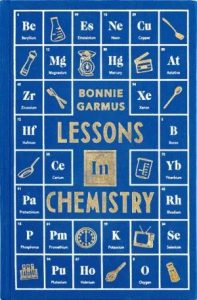
Mia McKenzie’s These Heathens is a vibrant, emotionally charged, and deeply human story that captures how one weekend can alter the course of a life forever. Set in 1960 Georgia, this novel unfolds through the eyes of seventeen-year-old Doris Steele, a small-town girl whose devout faith and limited worldview are about to be shaken to their core. What begins as a desperate journey to Atlanta for an illegal abortion transforms into a revelatory coming-of-age experience that challenges everything Doris thought she knew about morality, freedom, and herself.
The story opens with one of the sharpest, most arresting first lines in recent fiction: “One thing needs clearing up right off: Reverend King was not the father.” It’s a bold start that perfectly sets the tone for McKenzie’s fearless narrative voice funny, irreverent, and strikingly honest.
In Atlanta, Doris is thrust into a whirlwind of people and ideas utterly foreign to her. Accompanied by her former teacher, Mrs. Lucas, she finds herself among women who love other women, civil rights leaders she’s only seen in Jet and Ebony, and students who are organizing sit-ins and marches for justice. These encounters are both scandalous and electrifying to Doris, who narrates her confusion, fear, and wonder in a voice that is at once naïve and full of surprising insight.
Doris is not an easy heroine to love. She’s judgmental, impulsive, and frequently exasperating. But McKenzie handles her imperfections with compassion and nuance, allowing readers to see her contradictions as the natural messiness of adolescence. Growth, McKenzie reminds us, is rarely graceful it’s awkward, raw, and deeply human. By the end of the novel, Doris emerges as a young woman forever changed, no longer just running from sin but searching for truth on her own terms.
What truly makes These Heathens exceptional is McKenzie’s ability to weave the personal and the political so seamlessly. Through Doris’s eyes, we glimpse a rich slice of the civil rights era not through grand speeches or heroes cast in marble, but through everyday people trying to make sense of an unjust world. The story touches on the intersections of race, class, sexuality, and faith with clarity and compassion, all while maintaining a rhythm that feels alive and immediate.
McKenzie’s prose is a masterclass in plainspoken brilliance. Her writing is not ornate but crackles with wit, rhythm, and heart. Each line feels intentional, and her humor sometimes biting, sometimes tender gives the story its unique pulse. Doris’s prayers, full of contradictions and curiosity, offer some of the book’s most memorable moments.
These Heathens is not just a story about a girl seeking an abortion; it’s about what happens when she steps outside the confines of her small-town faith and discovers a world more complex and more beautiful than she ever imagined. It’s a testament to the courage it takes to question the beliefs we inherit and to find one’s own sense of right and wrong in a noisy, divided world.
If you love historical fiction that centers on the personal rather than the political, if you enjoy coming-of-age tales that are both tender and unflinching, this book is a must-read. It belongs alongside modern classics of feminist and Black literature that celebrate identity, resistance, and self-discovery.
Final Verdict: These Heathens is a witty, fearless, and poignant triumph a story that entertains, provokes, and lingers long after the last page.
👉 Grab your copy here: Buy on Amazon


